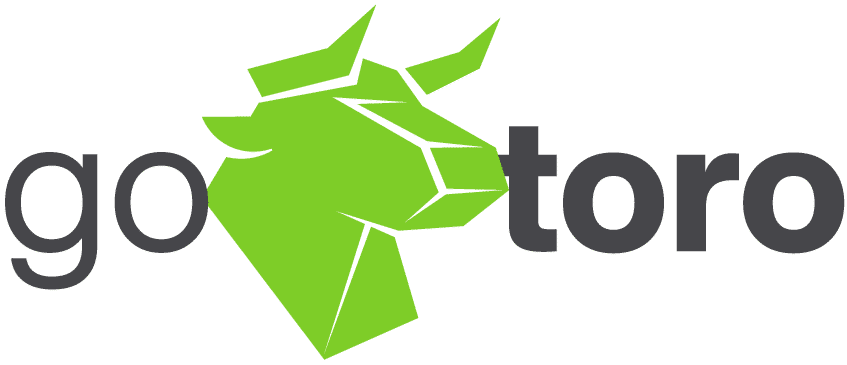In today’s fast-evolving job market, the expectations and behaviors of job seekers have undergone significant transformations. Gone are the days when securing a job was merely about obtaining a paycheck. The modern job seeker is looking for much more — from alignment with personal values to flexible work arrangements and significant growth opportunities. This shift reflects a broader change in how careers are viewed: not just as jobs, but as integral parts of a purposeful life. Understanding these evolving expectations is crucial for employers aiming to attract and retain top talent.
Understanding Modern Job Seekers’ Priorities

Aligning with Personal Values
One of the most defining traits of the modern job seeker is their focus on finding roles that resonate with their personal values. Today’s candidates are more likely to pursue companies whose mission statements and corporate cultures align with their own beliefs and ethics. This shift towards purpose-driven careers means that employers must now communicate not just what they do, but why they do it, and how they make a positive impact on the community and the world.
Flexibility and Growth Opportunities
Flexibility has also become a key factor in job selection. Modern job seekers often look for opportunities that offer the ability to adjust work hours, work remotely, or maintain a healthy work-life balance. Alongside flexibility, there is a strong desire for roles that offer clear paths for personal and professional growth. Potential employees want to know that they will have opportunities to learn new skills, advance in their careers, and be appropriately challenged and rewarded.
Beyond the Paycheck: A Purpose-Driven Career
The modern job seeker is increasingly interested in roles that provide more than just financial compensation. They are looking for careers that feel meaningful and contribute to their overall life goals. This means employers need to present jobs not just as a means to an end, but as integral parts of fulfilling lives, with opportunities for employees to contribute to something greater than themselves.
The Role of Technology in Modern Job Seeking

The Rise of Mobile Recruiting
Technology has significantly altered the landscape of job seeking, particularly through the rise of mobile recruiting. Modern job seekers expect to interact with potential employers at the touch of a button, whether that’s watching company culture videos, receiving job alerts, or applying for a position directly from their smartphones. Employers need to ensure that their recruitment strategies are mobile-friendly, from the initial job posting to the application process.
68 percent of job seekers ages 18-25 use their mobile devices to search for jobs (Recruiter, 2024).
Continuous Communication and Engagement
The expectation for quick and engaging communication has never been higher. Modern job seekers want ongoing dialogue throughout the recruitment process, reflecting their need for engagement and acknowledgment. This can include regular updates about their application status, feedback following interviews, and even interactive content that keeps them informed and engaged with the company during the hiring process.
81 percent of job seekers say employers communicating continuous status updates would greatly improve their overall experience (Career Builder, 2024).
By embracing these priorities and leveraging technology effectively, employers can meet the expectations of the modern job seeker and establish themselves as desirable places to work.
Strategies to Engage Modern Job Seekers
The landscape of recruitment is rapidly changing, and engaging the modern job seeker requires a multifaceted and flexible strategy. Here’s how employers can adapt to meet these evolving needs.
Utilizing Multiple Platforms
Modern job seekers leverage a variety of platforms when searching for the perfect job opportunity. From traditional job boards to social media channels and company websites, their approach is anything but linear. For employers, this means establishing a strong digital presence across multiple platforms is essential. Not only does this broaden their reach, but it also catifies their appeal to a diverse pool of candidates who may prefer one platform over another.
Encouraging Continuous Interaction
Engagement doesn’t end once the job application is submitted. Modern job seekers expect continuous interaction throughout the recruitment process. Employers should focus on maintaining communication through updates, feedback, and even informative content related to the job or company culture. Offering various application options, such as direct website submissions, email applications, and through social media inquiries, can also cater to the diverse preferences of job seekers today.
Beyond Traditional Recruitment: Building Networks of Opportunity
As the job market evolves, so too must the strategies employed to connect with potential candidates. Here’s how companies can build robust networks of opportunity to attract modern job seekers.
Enhancing Social Media Presence
A strong social media presence is crucial in today’s job market. Modern job seekers often evaluate potential employers based on their social media profiles, content, and engagement. Active, engaging, and responsive social media accounts can attract more candidates by showcasing company culture and values.
Leveraging Employee Referrals and Management Involvement
Employee referrals remain one of the most effective methods for recruitment, offering a personal touch to the hiring process. Encouraging current employees to refer potential candidates can expand an employer’s reach into untapped networks. Additionally, involving top management in recruitment efforts can signal to candidates that the company values its workforce and is serious about hiring the best talent.
Adapting to Dynamic Market Demands
The ability to quickly adapt recruitment strategies in response to market changes is more important than ever. Employers need to be flexible and innovative, whether it’s tweaking their messaging based on feedback or exploring new recruitment technologies and methodologies.
The Impact of Remote Work on Job Seeking
Remote work has fundamentally changed the job-seeking landscape, making it one of the most significant shifts in modern employment practices.
Revolutionizing Job Seeking
The rise of remote work has removed geographical barriers, allowing modern job seekers to apply for positions that were previously beyond their reach due to location constraints. This shift not only expands the talent pool for employers but also offers job seekers opportunities that align better with their lifestyle and career aspirations.
Emphasizing Work-Life Balance
Remote work also places a significant emphasis on work-life balance, a priority for many modern job seekers. Companies that offer remote work options are often seen as more attractive because they are perceived to value the well-being and personal life of their employees.
Understanding and adapting to these aspects are crucial for engaging with the modern job seeker effectively. By doing so, employers can ensure they attract and retain the best talent in a competitive job market.
Importance of Employer Branding
Employer branding has become a crucial element in attracting the modern job seeker. In today’s job market, the way a company presents itself can significantly influence a candidate’s decision to apply or accept a job offer.
Reflecting Company Values and Culture
Modern job seekers are increasingly interested in working for companies whose values align with their own. A strong employer brand should clearly communicate what the company stands for, its mission, and how it treats its employees. This includes showcasing the company culture through various channels such as social media, company websites, and during the recruitment process.
Community Involvement
In addition to internal culture, modern job seekers are attracted to companies that are actively involved in their communities. This involvement can range from charity initiatives to supporting local businesses or environmental sustainability efforts. Employers that demonstrate a commitment to the community often stand out as more attractive places to work.
The Shift Towards Skills and Potential Over Credentials
The criteria for selecting the right candidates have evolved significantly in the modern job market. There is a growing emphasis on the practical skills and potential of candidates rather than just their academic credentials or past job titles.
Valuing Skills and Potential
Modern job seekers often bring a diverse set of skills that may not necessarily be reflected through traditional credentials. Companies are increasingly looking at what a candidate can achieve and how they can grow within the company, rather than just their degrees or the schools they attended. This shift encourages a focus on skill-based hiring practices and assessments that evaluate a candidate’s ability to perform and adapt.
Promoting Lifelong Learning
With the rapid pace of technological change, the ability to learn and adapt has become more critical than ever. Employers are looking for candidates who are committed to lifelong learning and continuous improvement. Companies that provide opportunities for ongoing education and professional development are more likely to attract and retain talented individuals who are eager to advance their skills.
Diversity and Inclusion
Diversity and inclusion are more than just buzzwords; they are essential components of a modern and effective workplace.
The Benefits of Diverse Teams
Diverse teams bring a variety of perspectives, ideas, and experiences to the table, which can lead to more innovative solutions and better decision-making. Employers that prioritize diversity and inclusion are often seen as more progressive and appealing to a broader range of job seekers.
Inclusive Practices
Inclusion goes beyond hiring diverse candidates; it involves creating an environment where all employees feel valued and can thrive. This includes implementing policies and practices that support the various needs of employees from all backgrounds. Companies that successfully create an inclusive culture are better positioned to attract and retain the modern job seeker, who values diversity and equity in the workplace.
Understanding and implementing these aspects are key to attracting and engaging with the modern job seeker. By focusing on employer branding, valuing skills over credentials, and promoting diversity and inclusion, companies can better meet the expectations of today’s job seekers and create a more dynamic and successful workplace.
Leveraging Data and Analytics in Recruitment
Data and analytics play an increasingly crucial role in modern recruitment strategies, offering insights that help companies optimize their hiring processes and better meet the needs of modern job seekers.
Optimizing Recruitment Processes
By analyzing data from past recruitment efforts, companies can identify what strategies are most effective, where bottlenecks in the process might be, and how these can be improved. This allows for a more streamlined and efficient hiring process, reducing time-to-hire and improving the overall candidate experience.
Improving Candidate Experiences
Data analytics can also be used to enhance the candidate experience. By understanding the preferences and behaviors of job seekers, employers can tailor their communication and interactions to meet the expectations of modern candidates, ensuring that they feel valued and engaged throughout the process.
Predicting Future Hiring Needs
Advanced analytics tools can help predict future hiring needs by analyzing trends and patterns in workforce data. This proactive approach allows companies to better prepare for upcoming vacancies and talent shortages, ensuring they have the right people in place when needed.
How GoToro Empowers Employers in Modern Recruitment

GoToro is at the forefront of adapting to the needs of the modern job seeker by providing advanced tools and strategies that help employers stay competitive in a fast-evolving job market.
Omni-Channel Advertising Network
GoToro’s omni-channel advertising network allows companies to reach qualified candidates where they are most active. Whether through social media, job boards, or direct recruitment campaigns, GoToro ensures that your job postings reach a wide yet targeted audience, increasing the chances of attracting the best talent.
Adapting to Modern Recruitment Strategies
GoToro offers a suite of tools and services designed to help employers adapt to modern recruitment strategies. From automated communication tools to detailed analytics reports, GoToro provides the resources companies need to streamline their recruitment processes, engage with candidates effectively, and make data-driven hiring decisions.
The job market continues to evolve, and so do the expectations of modern job seekers. Understanding and adapting to these changes is not just beneficial but essential for companies looking to attract and retain top talent. The strategic advantages of aligning with the needs of modern job seekers can lead to more effective recruitment, improved employee satisfaction, and ultimately, greater business success.
As you navigate these changes, consider partnering with GoToro to leverage our expertise in modern recruitment strategies. Request a demo from GoToro today and discover how we can help you transform your recruitment approach to meet the challenges of today’s job market.


